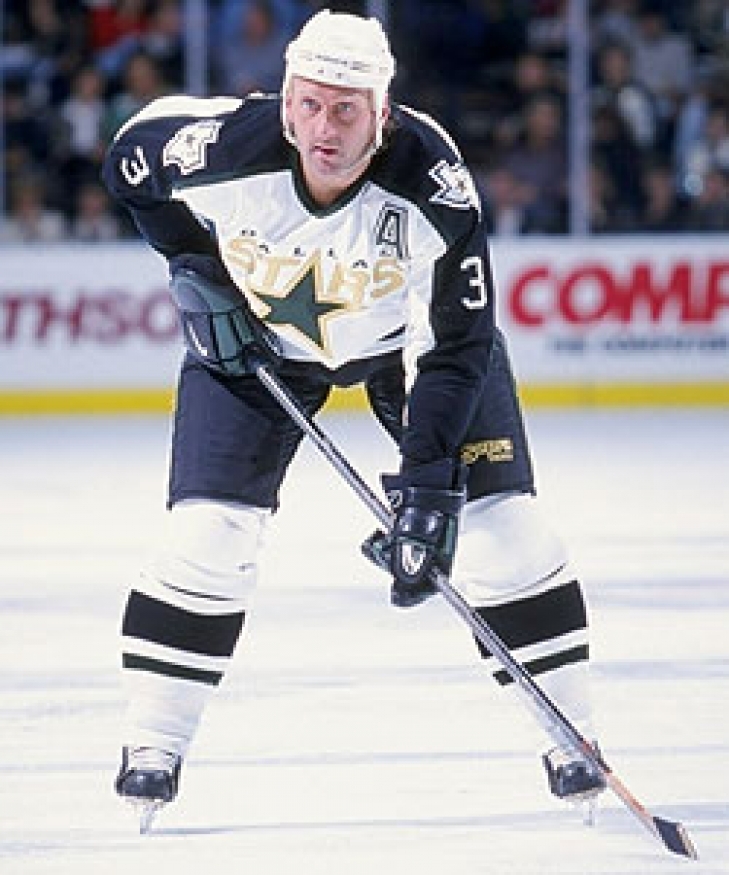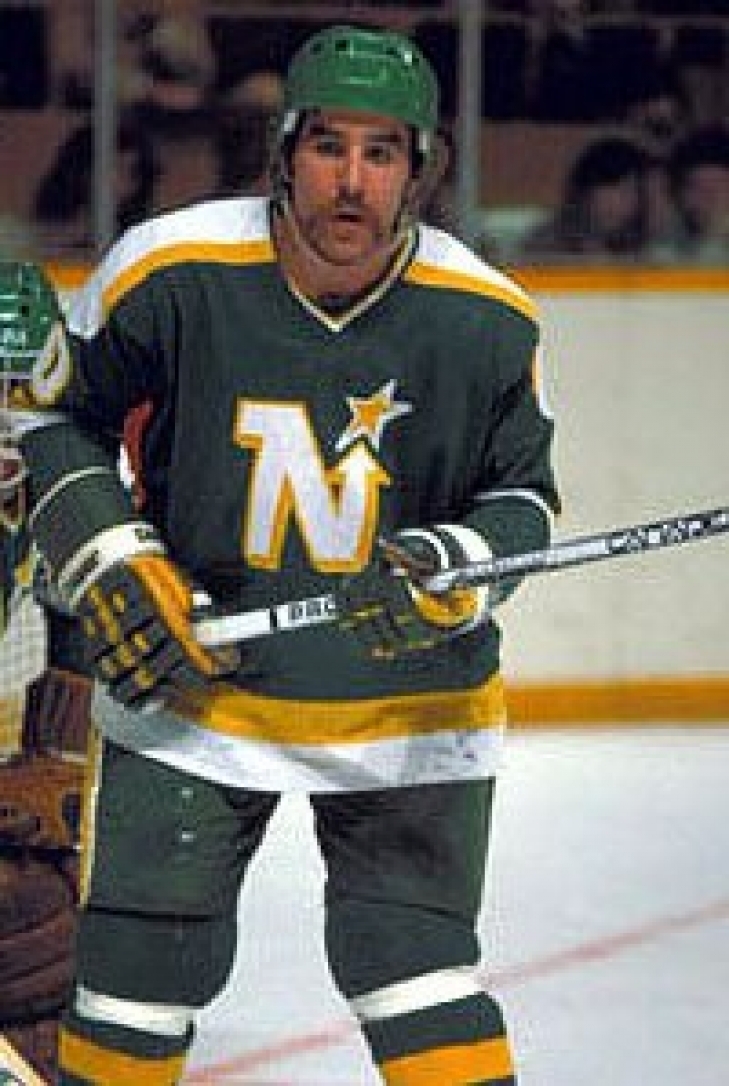201. Gordie Roberts
There really is not that many players who have competed in over 1,000 NHL Regular Season Games. Gordie Roberts is in that club but when you throw in the fact that he had another 300 plus in the World Hockey Association, you have a 19-year veteran who had quite the long career in professional hockey.
48. Tom McCarthy
49. Barry Gibbs
46. Craig Ludwig
Craig Ludwig was brought into the then named Minnesota North Stars to provide a veteran presence in the blueline, which was exactly what he provided them for over 500 Games.
45. Lou Nanne
If this list were in regards to overall importance to the organization Lou Nanne would be in the top ten. Following his playing days he was the team’s coach for a brief time and the General Manager for a decade and it was his moves that built Minnesota into one of the more exciting teams of the 80’s, which featured a trip to the Stanley Cup.
40. Dennis Hextall
Dennis Hextall was only with the Minnesota North Stars for four and half seasons but the plucky undersized forward out up the best numbers of his career playing there.
44. Gordie Roberts
Like many Defenceman Gordie Roberts did not light the lamp often but he did provide offensive spark providing the Minnesota North Stars with 30 Assists or more five times. Perhaps calling Roberts a “spark” is inaccurate as he was better classified as a rugged player who could steal the puck and help create a counter attack, something that he did often. While Roberts did not win a Cup with the North Stars his veteran presence was felt in back-to-back titles with the Pittsburgh Penguins.
41. Al MacAdam
Prior to being a North Star, Al MacAdam was a two-time All Star with Cleveland Barons, the team that merged its assets with Minnesota in 1978. The Right Winger might not have been named an All Star while he played for Minnesota but it was while wearing the green, gold and white that he had his best season, a 94 Point campaign in 1979-80 where he would also win the Bill Masterton Trophy.
34. Tim Young
Tim Young spent the majority of his professional career with the Minnesota North Stars where he averaged a very good .88 Points per Game. In his second season, Young was named an All Star and finished the season with 95 Points, which was good enough for 5th in the NHL. While he never finished in the top ten in scoring again, he did have two more seasons of 60 or more Points.
36. J.P. Parise
J.P. Parise was one of the many beneficiaries of the 1967 Expansion and in his late 20’s would find solid footing as a top forward for the Minnesota North Stars. Parise would score 70 Points in two different seasons, the first of which (1969-70) would see him finish seventh in the NHL in Points and sixth in Assists. Twice an All Star with Minnesota, Parise would go onto play for the New York Islanders and later Cleveland, and due to the teams merger with Minnesota he would return to the team where he had his greatest glory. He would serve as the team’s Captain in what would be his final year in the NHL.
38. Fred Barrett
While somewhat injury prone Fred Barrett found away to play 745 Games in the National Hockey League (730 of which were with the North Stars). Barrett was an energetic force on the ice and in the locker room making him an asset to the team despite his relatively low production on the box score.
30. Brad Maxwell
Brad Maxwell was known for his powerful shot and playmaking ability, which allowed him to become a potent force on the offensive side of the rink. An All Star in 1984, Maxwell had four seasons for Minnesota where he exceeded 35 Points, his highest being a 74 Point campaign in the 1983-84 season, an excellent number for a defenseman.
28. Danny Grant
While Danny Grant was a member of the Montreal Canadians 1968 Stanley Cup Championship team, he was still considered a rookie when he was traded the following off season to the North Stars. This is notable as he would become the Calder Trophy winner in the 1968-69 Season.
31. Curt Giles
There was nothing flashy about the game of Curt Giles but NHL teams need players who are defensive stalwarts, which was a role that he played very well.
23. Gilles Meloche
26. Cesare Maniago
Cesare Manigo may not have been an elite Goalie in the National Hockey League but he was a workhorse backstop who became successful in the expansion era. Maniago may not have brought the Minnesota North Stars to the Finals, but his defensive skill brought them closer to the Holy Grail of Hockey than they probably deserved at the time.
21. Steve Payne
While Steve Payne may not have been the most elite forward in Minnesota North Stars history, he was one of the more clutch performers in the teams lore. Payne would have six consecutive 50 Point seasons where he would also post a pair of All Star seasons. He would represent Minnesota twice in the All Star Game. Spine injuries would force him to retire before the age of 30 and it prematurely ended a career that was spent entirely with the North Stars.
20. Dave Gagner
15. Bobby Smith
The number one draft pick in 1978 did not disappoint, as Bobby Smith would promptly win the Calder Trophy as the NHL’s top rookie. Smith would prove to be an excellent playmaker tallying over 70 Points in his first five seasons as a North Star. This included a 114 Point season in the 1981-82 season, enough for eighth overall in the league.
12. Bill Goldsworthy
After three uneventful seasons with the Boston Bruins where he struggled to find playing time, Bill Goldsworthy first made heads turn in the 1967-68 post season where he led in Goals and Points. Now a bona fide starter with the North Stars, Goldsworthy would net 30 or more Goals in six of seven seasons finishing as high as 48 in the 1973-74 campaign. The four time All Star would become a fan favorite with his “Goldy Shuffle”, a celebration that he showcased after he scored a goal, essentially a precursor to the modern celebrations of today.





















